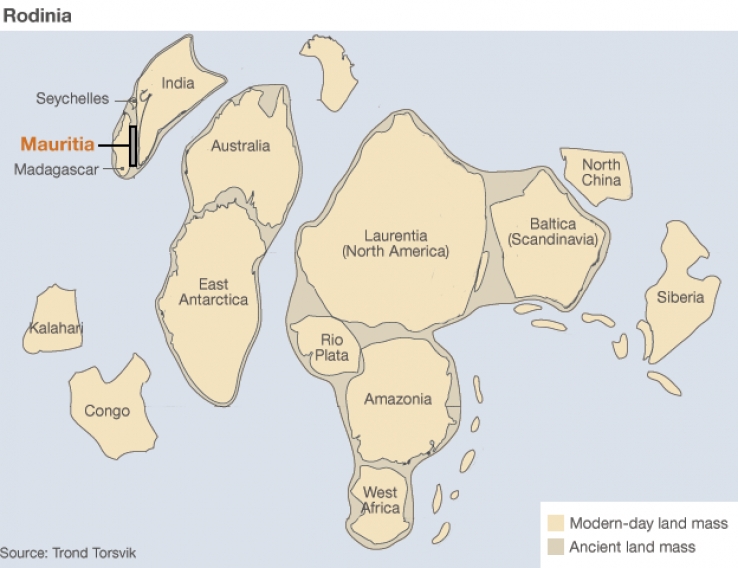
Land on Earth was once one supercontinent known as Rodinia, shown here as it was during its split-up about 750 million years ago.
Dr. Trond Torsvik, from the University of Oslo and one of the authors of the study, states that
part of this small continent is still above water, and is now part of the Seychelles, a group of islands between Madagascar and India.
This lost continent is near the country of Mauritius, an island nation in the Indian Ocean about 2,000 kilometers (1,200 miles) off the southeastern coast of Africa.
They state that this landmass called Mauritia existed intact between 2,000 and 85 million years ago. This was a time when the Earth's continents were a single giant continent called Rodinia.
However, the various landmasses slowly split apart. Mauritia also split from the other masses but eventually sank under the Indian Ocean.
The authors of the study had their paper published in the journal Nature Geoscience.
With the title "
A Precambrian microcontinent in the Indian Ocean", the paper, which was published February 24, 2013, states, "Here we use U–Pb [uranium–lead] dating to analyse the ages of zircon xenocrysts found within young lavas on the island of Mauritius, part of the Southern Mascarene Plateau."
And, "We find that the zircons are either Palaeoproterozoic (more than 1,971 million years old) or Neoproterozoic (between 660 and 840 million years old). We propose that the zircons were assimilated from ancient fragments of continental lithosphere beneath Mauritius, and were brought to the surface by plume-related lavas."
That is, the researchers found ancient zircon minerals in the grains of sand from the beaches of Mauritius, and they were hundreds of millions of years older than expected.
For more on this story, please read the BBC News article "
Fragments of ancient continent buried under Indian Ocean".
It quotes Dr. Torsvik, who said: "We found zircons that we extracted from the beach sands, and these are something you typically find in a continental crust. They are very old in age."
Source
SO COOL. I love this stuff